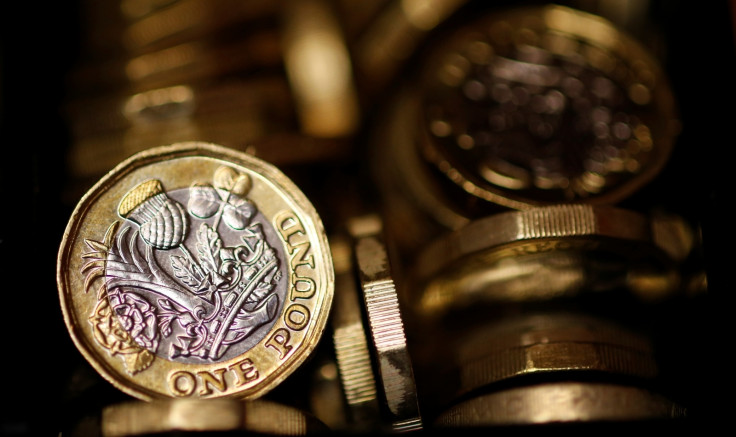8 basic financial lessons not taught at school that will help you save money this year
After losing weight and exercising, saving money is the third most popular new year's resolution

If you dare to be so indulgent as to eat avocados, buy takeaways or live in a major city then you are financially doomed. Those were the money lessons of 2017 if you are a millennial.
But while it's easy to give up on having any decent savings, let alone being able to afford a property of your own (yeah, funny, I know), hyperventilating before you look at your bank balance isn't a healthy way to live either.
And as a YouGov survey at the beginning of the year found, saving more money is one of the top priorities for most people, after losing weight and exercising.
So IBTimes UK asked some finance experts to share the lessons you should have been taught at school, but probably weren't.
Work out your outgoings as percentages
Let's start with the basics. Dust off your GSCE maths skills and calculate your monthly outgoings according to a percentage of your earnings. This will help you pinpoint what is left over to spend and save after you have paid for your bills, rent and other expenditures like food shopping.
"That would leave you with close to a third left over," says Jamie Smith-Thomson, managing director at pension advice specialist Portafina. "If you choose to save a half of this remaining income, you could build a very useful rainy day or emergency fund. For example, for someone earning the UK average annual salary of £27,6001 this would add up to over £3,000 per year."
Better yet, assess your 2017 expenses and come face to face with how much you spend on what in a year.
Learn what a credit score is
A credit score is a measure of how reliable you are with repayments, and can impact everything from whether you can buy a car to mortgage availability.
"If you've never borrowed, lenders have no way of predicting how reliable you'll be in the future and may even turn down your application," warns James Jones, consumer expert at Experian.
"Most of them would rather see a credit report showing a few well-managed loans or cards and regular repayments so ensure that you are borrowing regularly, but also ensuring not to miss payments as this may damage your score."
Having a credit card is one of the best ways to build a credit score. When signing up, shop around and pick one with the best benefits.
Pay yourself first
If you promise to put aside a few bob at the end of the month and this hasn't happened once for three years, assume 2018 won't be any different.
"The problem is there usually isn't money left – when we consider it available, it will be spent" says Smith-Thomson.
"To overcome this, pay yourself first. You can put the money into an easy-access account so you can use some of it is absolutely necessary, until you adjust to having less to spend."
"To really make the most of savings you will want to get the highest interest rate possible and not lose the growth to tax, so high-interest accounts and ISAs should be considered."
Cash is King
Treat yourself like a seven-year-old who can't be trusted with a bank card, especially as contactless payment options have made it even easier to chip away at your balance. Tim Connor, CEO and co-founder of Connoco Group, suggests setting a budget for monthly spending and taking it out in cash at the start of the week.
"If you can physically see money disappearing from your wallet you will find it much harder to part with it," he says.
Change your current account
"Some of the new challenger banks such as B from Clydesdale and Yorkshire Bank or Atom Bank and Mondo have tools built in so you can see at a glance how your spending breaks down, what you have left before payday and what's due to come out and when," says Connor.

Prioritise paying off debts
Many experts advise paying off credit card debts before squirrelling money away.
"If you are going to start saving it is worthwhile paying off any expensive debt that you have first. If your credit card is charging you 20% interest and your savings account is earning 3%, that's simply not savvy," says Michael Foote, founder of the Quote Goat comparisons website. "In this situation you can move the credit card balance to a 0% interest deal and continue to save or use your savings to pay off your debt."
Save your change
Using a "save the change" app is a great way to stow away cash without you realising it. Apps like Moneybox round every payment on your card up to the nearest pound, and the difference is placed into a separate account. Apps like Chip, meanwhile, save a small amount every time you spend.
"Put money into your ISA each year; the full allowance if you can afford it. The tax savings will compound upwards," says Rob Moore, author of Money, Make More, Know More, Give More?
The Moneybox Lifestime ISA, for instance, offers a 25% government bonus on all savings towards a first home.






















